AUGUSTA — Two nurses at Riverview Psychiatric Center work in a nursing station cut off from the patient activity in the hallways. One nurse watches a video monitor showing a seclusion room. The patient there has almost reached the time to be allowed out.
The other nurse walks in and out the nursing station door, retrieving and depositing items that appear to be paperwork for patients outside. The nurses on the inside can’t see what’s happening outside the room — except via video monitors — and the patients can’t see them.
That physical division is something Jay Harper, Riverview’s acting superintendent, wants to change on all the units at the state mental health hospital.
“We would love to have this wall gone,” Harper said as he led a tour of the Lower Saco unit Wednesday afternoon.
Normally, outsiders see the hospital largely through court proceedings, many of them involving attacks by patients on staff members that result in serious injury for the hospital employee and criminal charges for the patient.
The walled-off nurses’ stations exist in all four units of the hospital: Upper and Lower Saco, the forensic units where patients are confined in connection with criminal matters; and Upper and Lower Kennebec, which have almost exclusively patients who are committed civilly to the state psychiatric hospital. Upper units are usually occupied by people who have been at the hospital longer.
On this day, the patient census is 79, almost evenly divided between the forensic and civil units.
Harper wants to replace the top half of the wall with Plexiglas, so patients and nurses have more face-to-face contact and more interaction. In an interview shortly after he took the top job in the hospital in March, Harper said he wanted to make the whole organization “inclusionary and transparent” and work with educators, the business community and others to help patients.
It’s part of the plan for culture change at a hospital that deals with some of the more difficult and violent patients and that has been besieged by a series of problems over the past 18 months.
An attack by patient Mark P. Murphy in March 2013 on a pregnant mental health worker on the Lower Saco Unit brought in corrections officers to try to control more aggressive patients. But the stun guns and handcuffs that were employed attracted the attention of federal regulators, and a subsequent survey of the hospital cost it certification from the Centers for Medicare & Medicaid Services beginning in September of that year.
It means that the state hospital is no longer eligible for federal reimbursement of about $20 million a year. The state is appealing that loss of certification.
The physical attacks on Riverview workers there have continued, and threats to harm employees appear to be increasing. Most of those events are described in court documents when patients face criminal charges.
In August, a nurse was slammed in the face with a chair allegedly wielded by an angry patient; and another patient, Charles D. Miles, is accused of rampaging through one of the forensic units, breaking numerous things, including heavy glass domes that cover surveillance cameras, and threatening to cut people with fragments over Labor Day weekend. In March, he and another forensic patient, Michael James, pleaded guilty to threatening Riverview workers.
In the halls of the Riverview Psychiatric Center’s Lower Saco Unit, where the hospital keeps it most acute and recently admitted forensic patients, it’s hard to distinguish the patients from the hospital employees.
Most of the clothing is casual and generally along the darker shades of blue.
The patients walked around freely, picking up the paper plates containing the supper they had selected earlier. One patient taped fall decorations on a window to a courtyard. Others seemed to interact quietly.
Some directly address Harper, who retired from Riverview as a patient advocate several months before being named acting superintendent.
In contrast to a general medical hospital, no patients push IV poles along as they walk, no one wears a hospital gown, no relatives hold patients’ hands or bring flowers into the unit. The patients can go to their individual rooms if they wish or remain in various common areas. They can accept or refuse treatment unless a judge orders otherwise.
“We’re physically designed as an open milieu,” Harper said. “Patients have control of their interaction with their physical environment.”
The 20-bed Lower Saco unit is essentially a hospital within a hospital, a self-contained unit with its own doctors, nurses, mental health workers, recreation room and outdoor space with a basketball hoop, a picnic table and a patient-tended garden bursting with bright green peppers and bright yellow and red tomatoes.
Unlike a general hospital, coils of barbed wire top the tall cyclone fence, separating the yard from a parking lot and a lawn that leads down to the Kennebec River.
The hospital administration essentially has isolated this wing from the rest of the hospital in an effort to try to regain federal certification and thereby federal funding for the 72 beds it houses in the other three units.
Patients housed in Lower Saco don’t have access to the hospital’s gymnasium or cafe or a separate outdoor courtyard where staff can mix with other patients during meals.
The separation is one of several steps taken under Harper, who has been the hospital’s acting superintendent since March.
Harper succeeded Mary Louise McEwen, who had been superintendent for almost five years when she was ousted in a leadership change by the commissioner of the Department of Health & Human Services. At one point, McEwen served as superintendent of both Riverview and the other state-operated psychiatric hospital, Dorothea Dix Psychiatric Center in Bangor, which serves noncriminal patients.
Harper said he hopes the changes, which include bringing in 16 acuity specialists to help respond to patients with behavioral problems, adopting a new method for documenting treatment provided and changing the physical plant, will result in federal regulators re-certifying the 72-bed section. He’s already changed an exterior sign, which renames the facility Riverview Psychiatric Recovery Center.
But the Lower Saco unit would be excluded at least until changes are made there as well to satisfy federal regulators that it is functioning as a hospital rather than a correctional institution.
Harper said that is one of the biggest challenges for the hospital, which is well versed in treating those with clinical diagnoses of bipolar and schizophrenia, and which has dealt with patients who have developmental and personality disorders. It’s a third group of patients, those without a diagnosis who engage in criminal behavior, including intimidation, who pose the most difficulty and can engage in intimidation of other patients, he said.
Harper said the hospital has improved access to other medical facilities where consultants could help with approaches to particularly difficult cases, including patients with head injuries. For that, Harper said, evaluators must determine how much of the problem is psychiatric and how much is from the head injury.
“If there’s organic damage, medication may or may not help,” he said.
Harper described the patients’ day as similar to any on the outside — work, including therapy sessions, during the daytime hours; and recreation in the evening. Almost all the patients have jobs at the hospital.
In fact, two patients operated floor polishers along the treatment mall corridor, which houses rooms where patients attend group sessions on such topics as anger management, bipolar support, boundaries, managing anxiety and “Addiction in Your Family.” The patients running the machinery ducked into some of the rooms while Harper led people through the area. The mall also has one room used as a library and another as a clothing bank. All the books and clothes are donated, he said.
Harper offered some graphs illustrating that changes made during this year have produced some improvement. For instance, he said, the hospital has nine direct-care and two indirect-care vacancies out of a staff of 358. The graph indicating that shows that more than 40 posts were vacant earlier in the summer.
“When you move this whole culture, you have this lag time,” Harper said.
Court Master Daniel Wathen, who supervises a consent decree setting standards for the state’s treatment of mentally ill people, issued a six-month progress report last week, indicating staff turnover was higher than usual. His report also said the hospital’s current operation “can only be characterized as troubled.”
Wathen plans an official site visit in October and said that could result in recommendations to assist the hospital with coming into compliance with federal requirements for certification by the Centers for Medicaid and Medicare Services.
The Joint Commission, an Illinois-based nonprofit organization, renewed Riverview’s accreditation in November, for three years, giving the hospital mostly average marks compared to hospitals nationwide. Riverview got negative marks for discharging patients while on certain medications and for the amount of time seclusion was used.
The Joint Commission study, which ran from July 2012 to June 2013, found that Riverview discharged 21 percent of 144 patients while on two or more antipsychotic medications, double the national average. Also, it had patients secluded an average of 2.2 hours for each 1,000 hours of care, more than seven times the national average.
Riverview’s internship and residency program is operating now and includes four psychology interns, and two interns each in social work and occupational therapy. Earlier in the week, Harper said he had spoken at an orientation for 40 nurses who will do rotations at Riverview as part of their training at various nursing programs in central Maine. Harper sees those programs as big recruitment tools.
A classroom in the administrative wing has monitors and desks so a number of people can participate in the conversation with experts who might be out of state.
“We get to really work through challenges,” Harper said.
This is a corrected version of this story.
Betty Adams — 621-5631
Twitter: @betadams
Send questions/comments to the editors.


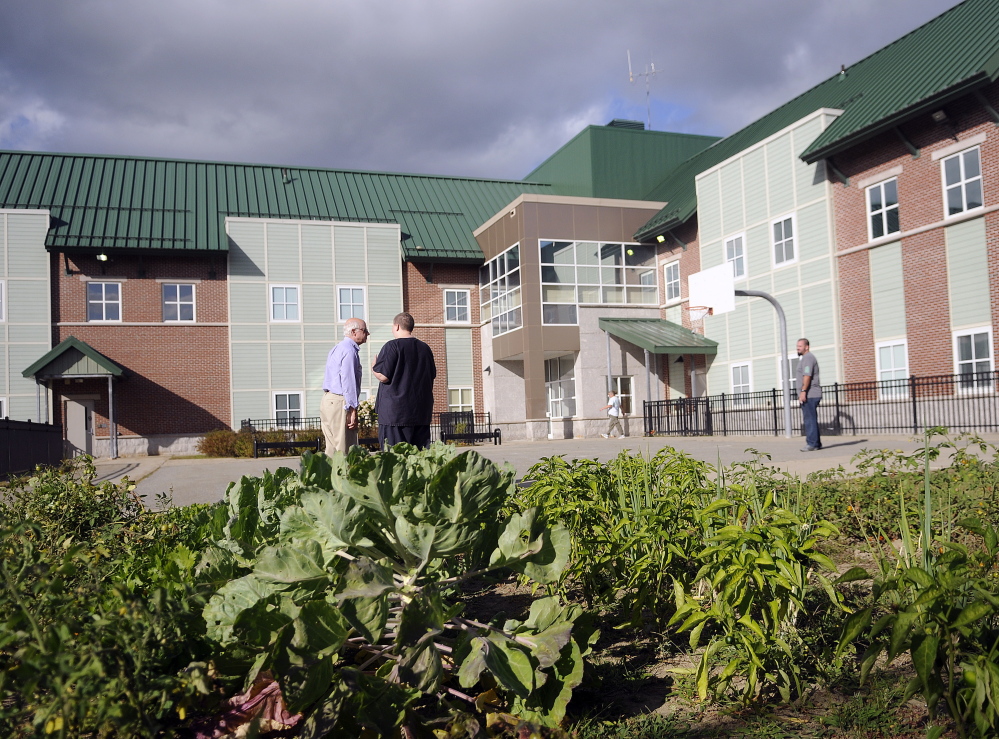
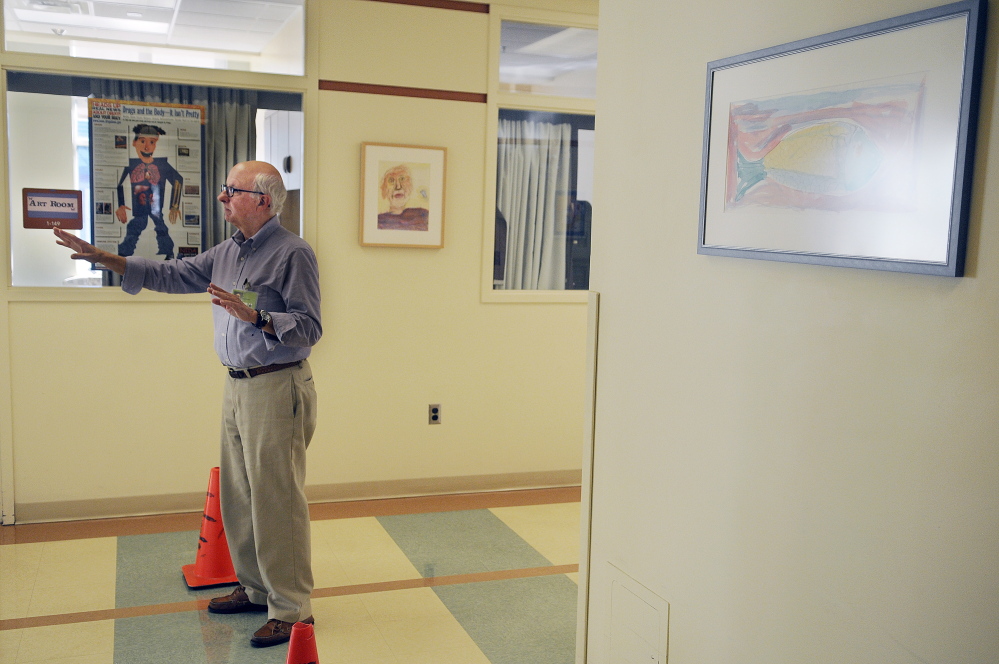
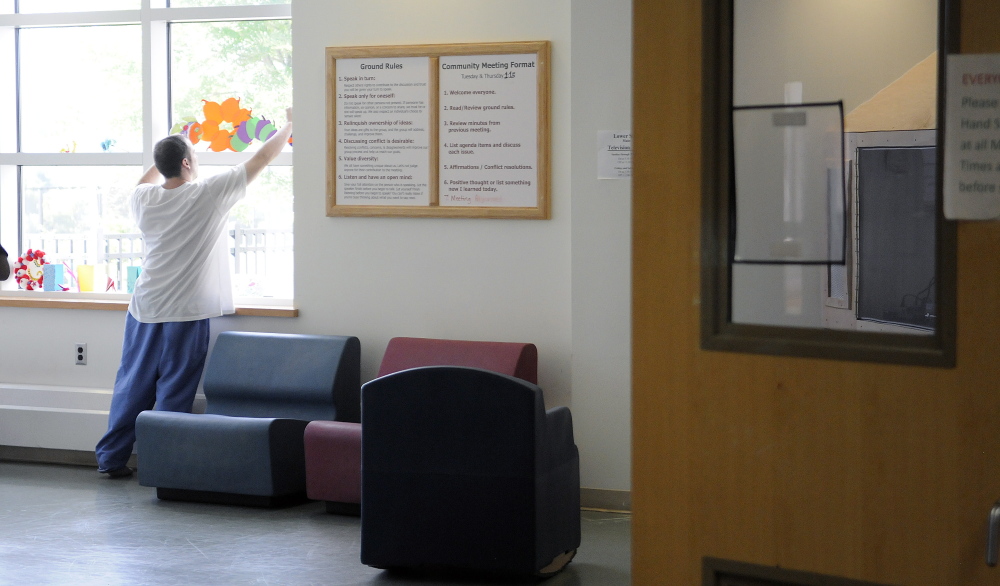
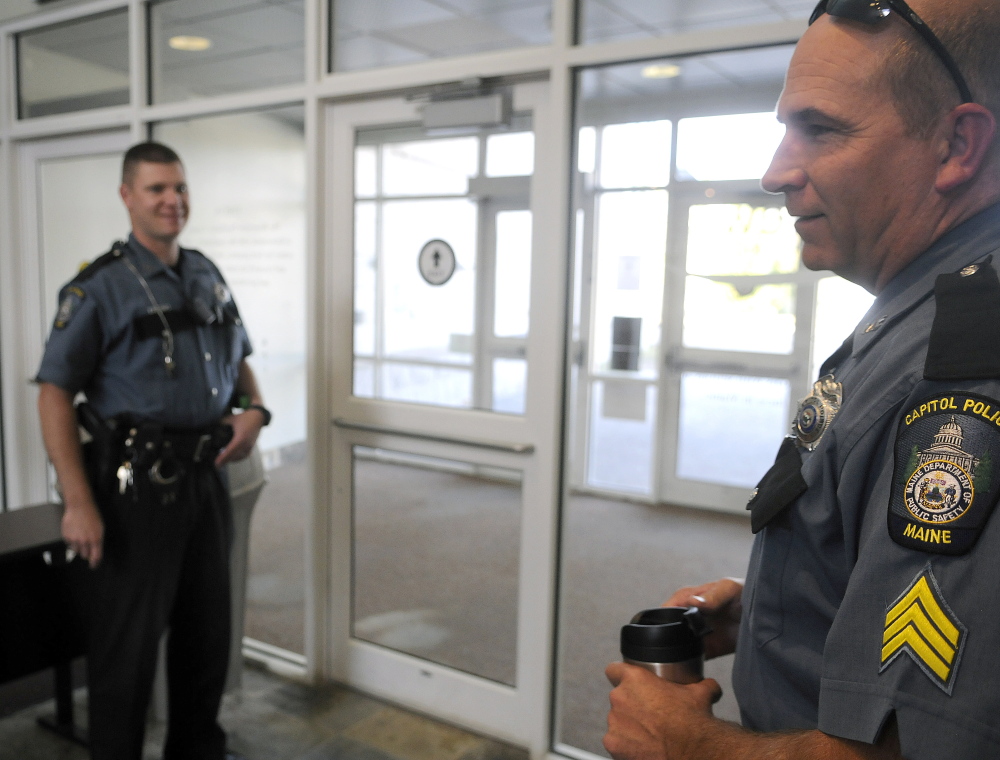
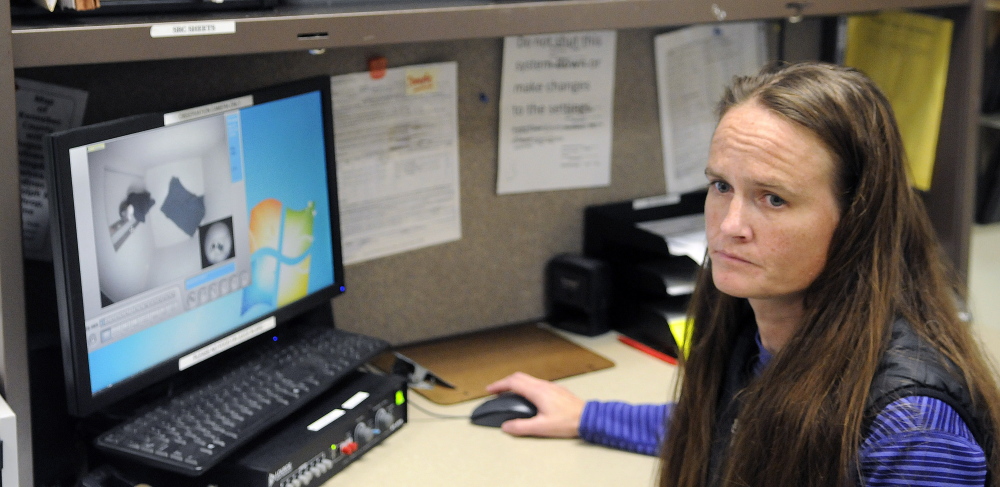

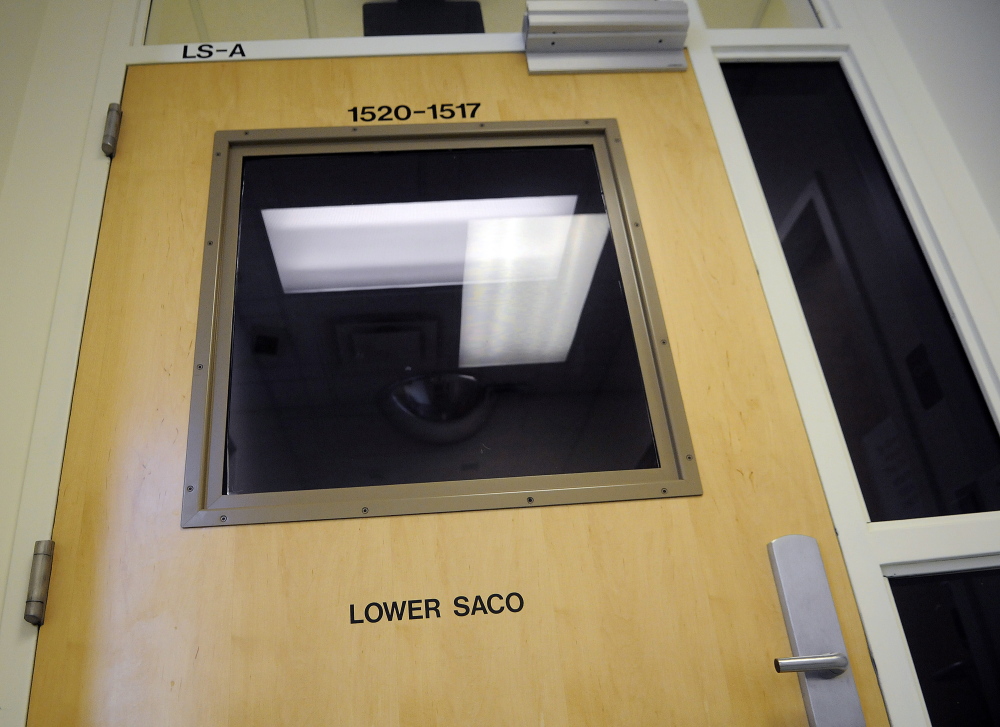
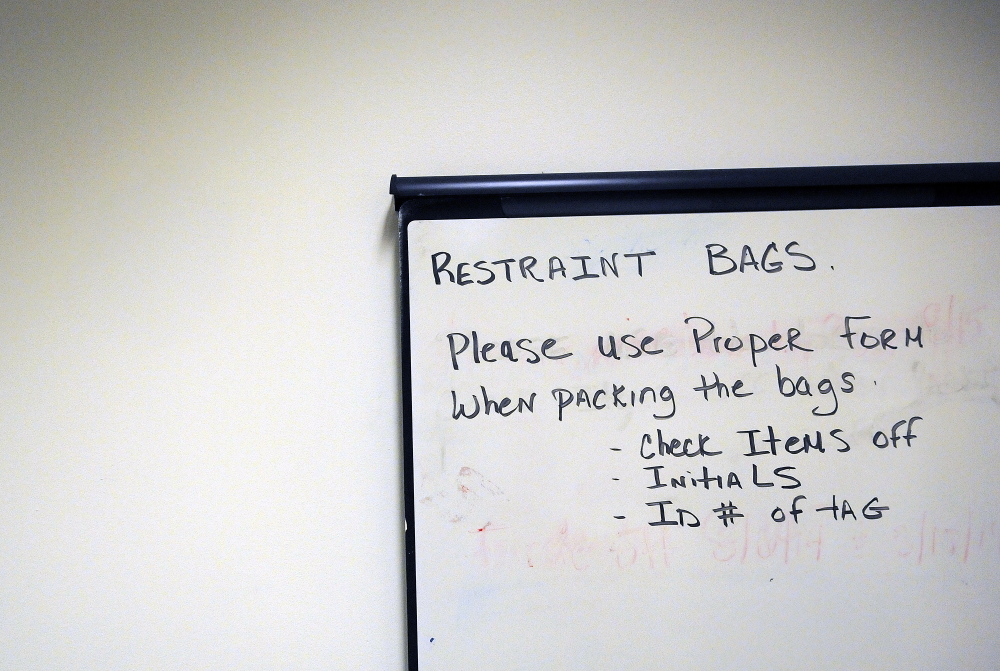


Success. Please wait for the page to reload. If the page does not reload within 5 seconds, please refresh the page.
Enter your email and password to access comments.
Hi, to comment on stories you must . This profile is in addition to your subscription and website login.
Already have a commenting profile? .
Invalid username/password.
Please check your email to confirm and complete your registration.
Only subscribers are eligible to post comments. Please subscribe or login first for digital access. Here’s why.
Use the form below to reset your password. When you've submitted your account email, we will send an email with a reset code.